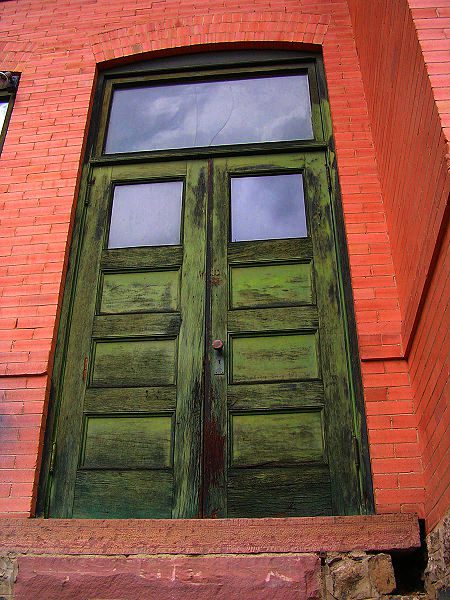In the Religio Romana the first day of the New Moon is called the Kalends. The Kalends of February holds a special significance as this is the month of purification. A ritual purification of the front door of a house is therefore held on 1 February.
The door ought to be washed down with water in which verbena or mints have been distilled. Then the door is wiped down using a measuring motion. You hold two ends of a cloth in either hand with the hands held side by side. Then the right hand is slid to one side to the full extent of the cloth. The left hand follows. You continue until the whole door has been wiped clean of all evil. The cloth should then be buried under a tree of ill omen.
The hinges of the door are dabbed with olive oil (or wolf fat in ancient times) using a sprig or bough of mulberry or arbutus, while praying to Cardea. The threshold should also be cleansed and wiped with water in which sweet basil has been instilled (to attract money). Three mulberry leaves are then placed on the threshold.
On the stoop outside the door one leaves offering for Juno Februa. These offerings should be roasted grains of spelt-wheat and salt, milk, honey, water with which to wash, and a lighted candle. A wreath of laurel is hung above the door outside. A sprig of hawthorn is hung by the door as well, on whose spikes evil is impaled. Bells and wind chimes, called tintinabula, were hung near doors on the inside to keep evil at bay, while mazes and puzzles near the door were intended to trap evil as well.
One prays to Juno Februa to keep your house healthy and safe, and you should always end your ritual at the front door with laughter, as evil spirits fear the sound of children’s laughter.


















